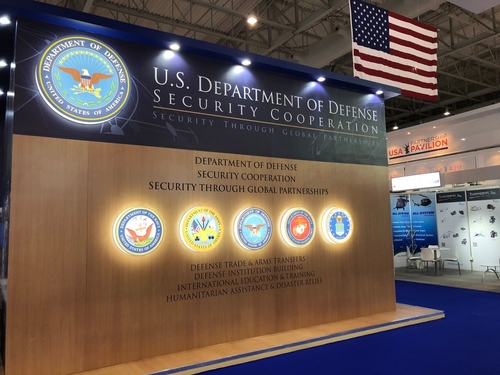
As part of the Defense Manufacturing Community Support Program (DMCSP), the U.S. Department of Defense (DoD) this week awarded approximately $30 million to six organizations, following competitive applications.
“Delivering capabilities to our warfighters at scale depends on a resilient and robust manufacturing base,” Dr. William LaPlante, Under Secretary of Defense for Acquisition and Sustainment, said. “This year’s awards will strengthen advanced manufacturing capabilities in defense-critical sectors while cultivating our most important resource: our people. I am confident that the collaboration with public, private, and academic partners fostered by the Defense Manufacturing Community Support Program will have a lasting impact not only on our defense industrial base, but on our national security for years to come.”
The DMCSP is a long-term investment program to foster critical skills, facilities, workforce development, research and development and small business support for national security innovation. In this round of funding awards, recipients included the Michigan Defense Resiliency Consortium ($4.97 million), Missouri Defense Manufacturing Community Consortium ($4.99 million), New York Consortium for Space Technology Innovation and Development ($5 million), New York State Microelectronics Defense Manufacturing, Supply Chain and Workforce consortium ($5 million), Central Pennsylvania Defense Shipbuilding Talent and Innovation Defense Ecosystem ($4.9 million) and America’s Additive Foundry Consortium ($5 million).
Each will be presided over by the Office of Local Defense Community Cooperation, with funding derived from FY23 appropriated funding, complemented by $10,934,491 in non-Federal funds. Through their collective efforts, the DoD hopes to strengthen the national security industrial base overall.
“These grant awards are focused in defense-critical sectors, from battery and energy storage to microelectronics and castings and forgings,” Dr. Laura Taylor-Kale, Assistant Secretary of Defense for Industrial Base Policy, said. “These projects highlight the important innovation ecosystem that exists between public, private and academic partners, and DoD looks forward to following the progress on each of these initiatives.”
They will go to a variety of areas. In the case of the Michigan Defense Resiliency Consortium, for example, funding will help launch energy storage and battery manufacturing to support DoD transitions from internal combustion engine to electrical-based vehicles. Other efforts include creation of an engineer and tradespeople network linked to modern digital advanced manufacturing technologies, advanced defense space technology manufacturing, building talent pipelines among the microelectronics industry, increasing submarine production and securing tactical alloys through new manufacturing approaches.




